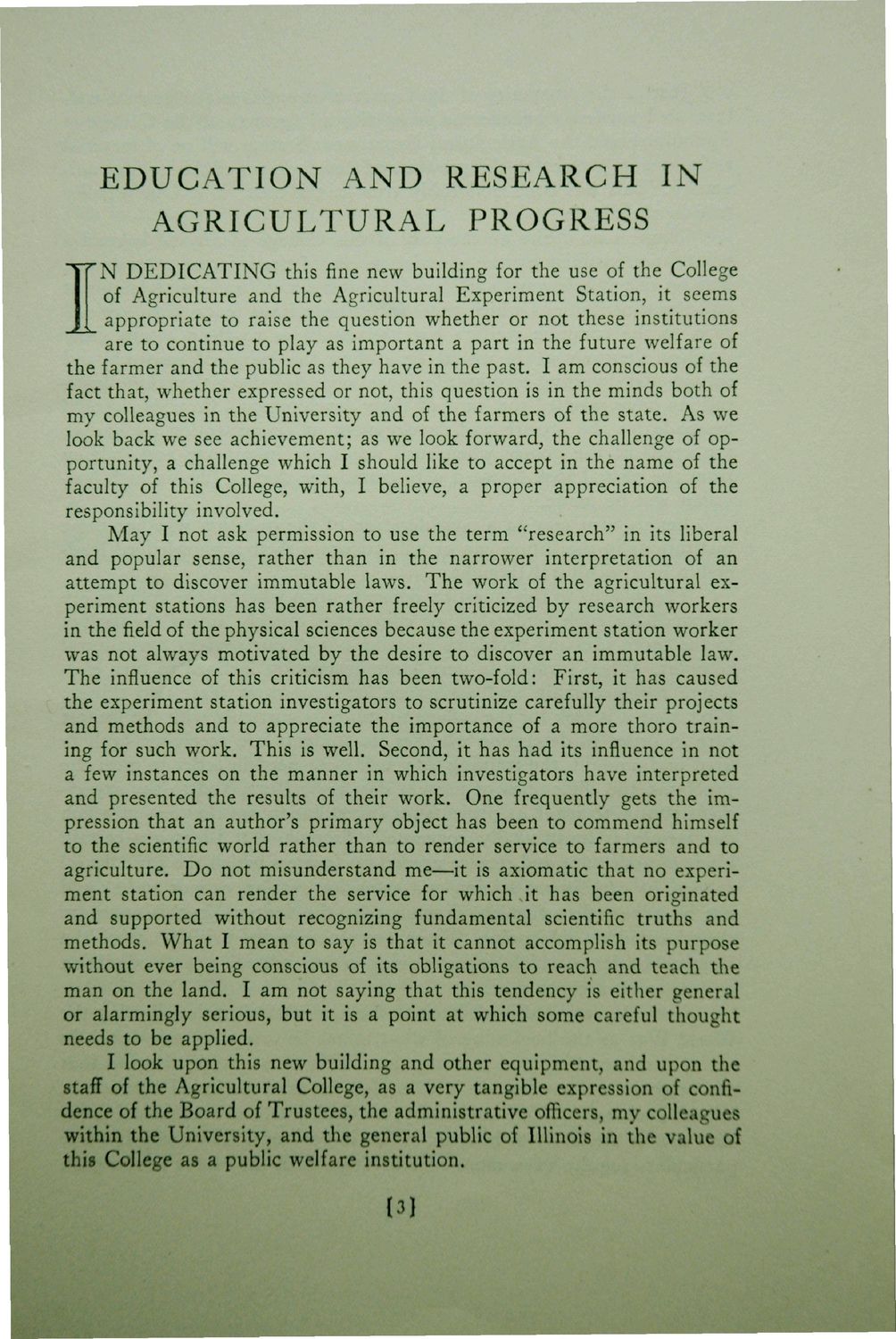| |
| |
Caption: Dedication - New Ag Building Speech
This is a reduced-resolution page image for fast online browsing.

EXTRACTED TEXT FROM PAGE:
EDUCATION AND RESEARCH IN AGRICULTURAL PROGRESS "" TN DEDICATING this fine new building for the use of the College of Agriculture and the Agricultural Experiment Station, it seems appropriate to raise the question whether or not these institutions are to continue to play as important a part in the future welfare of the farmer and the public as they have in the past. I am conscious of the fact that, whether expressed or not, this question is in the minds both of my colleagues in the University and of the farmers of the state. As we look back we see achievement; as we look forward, the challenge of opportunity, a challenge which I should like to accept in the name of the faculty of this College, with, I believe, a proper appreciation of the responsibility involved. May I not ask permission to use the term "research" in its liberal and popular sense, rather than in the narrower interpretation of an attempt to discover immutable laws. The work of the agricultural experiment stations has been rather freely criticized by research workers in the field of the physical sciences because the experiment station worker was not always motivated by the desire to discover an immutable law. The influence of this criticism has been two-fold: First, it has caused the experiment station investigators to scrutinize carefully their projects and methods and to appreciate the importance of a more thoro training for such work. This is well. Second, it has had its influence in not a few instances on the manner in which investigators have interpreted and presented the results of their work. One frequently gets the impression that an author's primary object has been to commend himself to the scientific world rather than to render service to farmers and to agriculture. Do not misunderstand me—it is axiomatic that no experiment station can render the service for which it has been originated and supported without recognizing fundamental scientific truths and methods. What I mean to say is that it cannot accomplish its purpose without ever being conscious of its obligations to reach and teach the man on the land. I am not saying that this tendency is either general or alarmingly serious, but it is a point at which some careful thought needs to be applied. I look upon this new building and other equipment, and upon the staff of the Agricultural College, as a very tangible expression of confidence of the Board of Trustees, the administrative officers, my colleagues within the University, and the general public of Illinois in the value of this College as a public welfare institution. {3}
| |